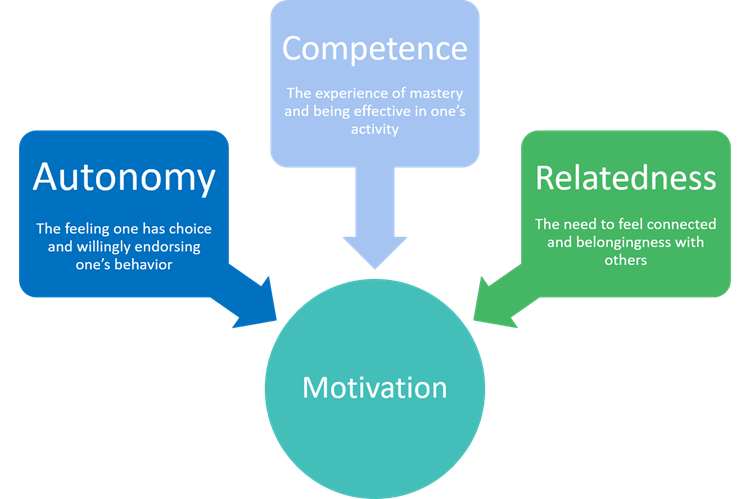Healthy habits are hard to create, and it can be even more difficult to make long-term lifestyle changes. But Self-Determination Theory, founded by researchers Edward Deci, PhD, and Richard Ryan, PhD, at the University of Rochester, shows how motivation and making your own choices can help you stick to new health goals.
Susan Gasparino, MD, MPH, medical director of Clinical and Community-Based Programs at UR Medicine’s Center for Community Health & Prevention (CCHP), shares her insights into Self-Determination Theory and gives tips from the CCHP experts on how to meet your goals.
What is Self-Determination Theory?
Self-Determination Theory (SDT) refers to a person’s ability to manage themselves, make confident choices, and think on their own. At its most basic level, SDT is driven by three innate and universal psychological needs: autonomy, relatedness, and competence.
The Three Core Needs of Motivation
Motivation can be thought of as either external (such as fear of punishment or wanting a reward, like a prize or a raise) or internal (such as going to the gym because it makes you feel good).

Autonomy: In Control of Your Choices
Autonomy allows a person to feel they have self-efficacy and control over their circumstances, which directly impacts their internal motivation.
It has been shown that internal motivation can be more successful for the long-term attainment of goals. When our goals align with our interests and values, the work required to achieve them becomes more than just a check off the list. It provides more meaning and personal satisfaction.
Relatedness: Building Connection
Relatedness is the ability to feel a sense of both attachment to other people and a sense of belonging with other people.
Feeling supported by others (and the self) increases follow-through. Research and experience suggest that others’ support is often critical to a person’s individual success in achieving their goals.
Competence: Creating Confidence
By setting small, manageable goals, we see that change is possible and we can make it happen. This boosts self-confidence and, in turn, builds self-efficacy.
When setting goals, try to focus on setting SMART goals—ones that are Specific, Measurable, Achievable, Relevant and Time-Bound.
Skip the ‘all or nothing’ thinking
Boost your motivation by focusing on the small changes you can make daily, or the small goals you can set.

Instead of saying, "If I can't get to the gym for 60 minutes today, I might as well not work out at all,” consider breaking up the hour into sessions throughout the day.
For example:
- Take a 10-minute walk at lunch
- Take a 20-minute walk after dinner
- Play with your kids for half an hour in the backyard
That’s an hour of movement! Breaking up your dedicated hour of exercise supports your autonomy. It allows you to incorporate movement that works for your lifestyle and helps you control exactly how you meet your goal. What matters is you met it, in a way that worked for you.
Need help setting goals and finding motivation? Contact the Center for Community Health & Prevention's clinical team at (585) 602-0720 for support.







.jpeg)

 English (US) ·
English (US) ·